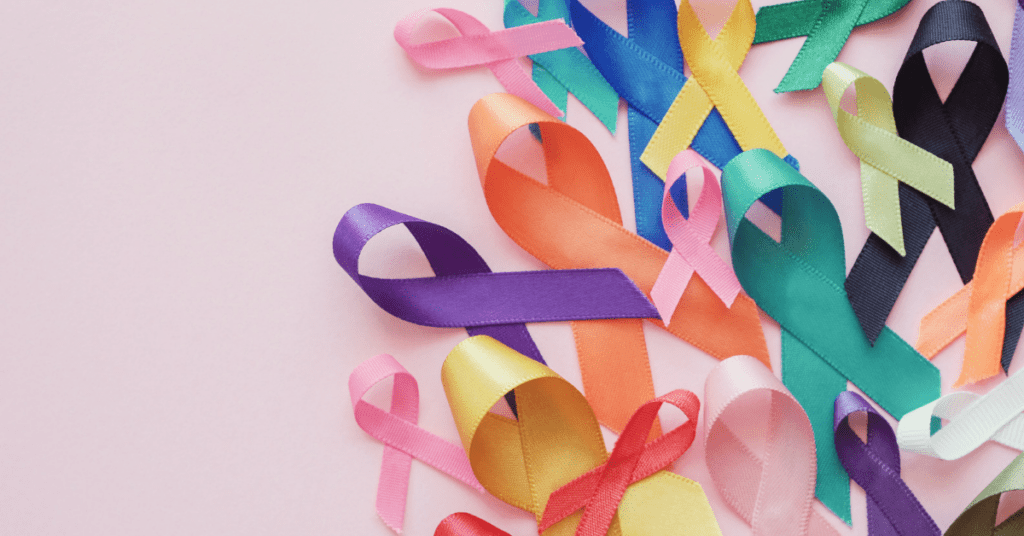Wondering what cancer caregivers support is and why it is so important? At Aynjil, we are here to help you understand the vital role cancer caregivers play in the physical and emotional well being of those diagnosed with cancer. Read on to find out what a cancer caregiver is and why they need extra support from family and friends.
What Are Cancer Caregivers?
To understand the support cancer caregivers need, we first need to define what a cancer caregiver is, which is very simple. If you help a family member, loved one, or friend during a cancer diagnosis, treatment and aftercare, you are a cancer patient caregiver.
You may not think that your assistance counts as caregiving but, whether you are assisting with day to day needs, such as cooking and grocery shopping, or providing emotional support and friendship, you are actively providing care. Often a cancer caregiver is a loved one, which is why cancer caregivers support is so critical.
What a Cancer Caregiver Should Expect
There are several emotional and physical changes you may experience while helping a loved one with cancer. Depending on the relationship with the person diagnosed with cancer, one may experience extreme changes in relationship dynamics and roles, which can be very emotionally challenging without cancer caregivers support.
A caregiver may also face a lot of rejection when seeking assistance with a cancer patient. The fear of death and loss can result in loved ones and friends wanting to avoid the person with cancer. Carers may also experience emotional changes or changes in mood, which is normal when coping with a loved one’s cancer diagnosis and acting as their support system.
Become a Source of Physical Support
Cancer caregivers often act as a source of physical support for those living with cancer. Treatments such as chemotherapy and radiation often cause weakness in patients, making tasks such as shopping, cooking, and looking after pets almost impossible. Depending on the treatment and stage of cancer, the caregiver may need to help feed, change and bathe the cancer patient. Here are some of the ways caregivers provide physical support to cancer patients:
- Assistance walking or moving
- Grocery shopping
- Preparing meals or helping with meal plans
- Feeding
- Ablutions and changing
- Filling prescriptions, collecting and administering medications
- Cleaning, laundry and other household chores
- Transportation/organising lifts
- Pet care
- Admin, such as paying bills, contacting doctors and making appointments
- Exercise
- Arranging palliative care
- Assisting with funeral arrangements
Emotional Support for Families
A caregiver becomes part of the emotional support system for the cancer patient and those who rely on them. Providing emotional support can be as simple as spending time talking with the patient or helping them get out of the house (if possible). These acts may seem small, but they have a huge impact on a patient, their overall well-being and stress.
Being there emotionally for the person suffering from cancer and their family may also become part of a caregiver’s job. Family members and those close to the person with cancer may need someone to speak to who understands the situation, their feelings and fears.
Caregivers are an incredible source of support to the patient and their loved ones. However, the role can become very emotionally taxing and even harmful to the carer’s mental health without cancer caregivers support.
The following activities are ways caregivers provide emotional support to patients and their loved ones:
- Being a friend
- Listening/being a confidant
- Talking about their experiences, feelings, life and wants
- Speaking with family members about their feelings
- Being a source of positivity and motivation
- Arranging outings (if possible) or at-home activities
- Providing a source of comfort
Financial Support
Caregivers often provide financial support without actually providing the patient with money. Simply by helping with child care, transport or cooking, a caregiver can prevent additional costs incurred by cancer and its treatment.
These are some of the extra costs a cancer patient may face without the help of a caregiver:
- A professional carer or nurse
- Child care services, such as Au pairs
- Petrol or taxi fare for transport
- A cook to help purchase groceries, prepare and plan meals
- A cleaner/cleaning service
- Physiotherapist to assist with exercises
What Are Three Signs of Caregiver Burnout?
With so much responsibility and stress placed on them, caregivers run the risk of burnout without cancer caregiver’s support.
Burnout happens when a carer has to deal with increased stress levels for a prolonged period, harming their physical and mental health and relationships. Carers can also develop unhealthy habits to cope with the additional emotional pressure of providing care and their personal life stresses.
The stress of being a cancer patient’s source of physical assistance and emotional support may result in the following:
1) Emotional Changes
Without cancer caregivers support, burnout and stress can result in mood swings and emotional changes, including anxiety, anger or angry outbursts, increased irritability and frustration, and depression.
2) Lack of Self-Care
During burnout, caregivers can ignore their own health needs. Without cancer caregivers support, caregivers can start eating poorly, give up on exercise, isolate themselves, and start displaying poor hygiene.
Those caring for cancer patients can also begin abusing tobacco, alcohol and other substances. Often a lack of self-care and increased stress leads to hair loss, skin issues and weight changes.
3) Tiredness
The third sign of caregiver stress and burnout is tiredness. It may not sound so bad, but fatigue due to sleeplessness leads to mistakes, injury, and poor quality of life for the carer.
How Can I Help a Cancer Caregiver?
Emotional Help for Caregivers
How can you provide emotional support to a friend or loved one who is a cancer caregiver? Just like caregivers are a shoulder to cry on for cancer patients and their families, you can be the same for your loved one. Simply being a friend and helping where you can is a great comfort and support to a caregiver.
Physical Help for Caregivers
There are many ways you can assist a carer and provide them with additional practical cancer caregiver’s support. Below is a list of physical ways you can be a support to a cancer caregiver:
- Go on walks or take a class together
- Plan a self-care day
- Assist with caregiving
- Run errands
- Offer to drop off meals for the carer
- Assist with events/organising activities for the patient
Financial Assistance for Cancer Caregivers
Caregivers help their loved ones with cancer financially by assisting with daily needs. However, often carers face their own financial issues. There are many ways in which you can support cancer caregivers financially without handling cash. This is how you can help:
- Provide transport
- Ask to visit and bring a healthy lunch
- Help with an at-home activity for both patient and caregiver
- Help with child care and school work
- Assist with cleaning or gardening
If you are financially able, help in small ways like purchasing airtime or buying groceries from time to time.
Cancer Caregiver Resources
Caregiver Support Organisations
There are some great cancer caregiver’s support resources available. From private charities to social communities, there are a host of support systems in place to help carers:
Psychology
Encouraging your loved one in a caregiver position to see a psychologist can help them immensely. Psychologists can provide cancer caregivers support and assist people dealing with the trauma of cancer.
Counselling
Counselling is a great source of cancer caregivers support, as group therapies, counselling sessions, and meditative therapy are all tools that can prevent burnout and stress.
Online cancer care communities
Online communities act as a wonderful support system for cancer caregivers. On these forums, social media pages and websites, these communities share news articles, blogs, personal stories and offer support to those providing care to cancer patients.
Today, online communities form a huge part of both patient and caregiver support systems during treatment, when outings or activities may not be possible.
Caregiver Financial Assistance
Financial assistance is available to caregivers should they need help with their income or the costs associated with caring for a cancer patient.
Government financial assistance
Known as a Grant in aid, the South African government has financial assistance available to full-time carers of those who receive a disability grant.
Private assistance
Some private charities, organisations and corporates help caregivers if they are struggling. However, most often, churches, communities, and families provide additional financial support to caregivers in need.
Cancer Caregivers and Self-Care
To avoid burnout and reduce the stress of a cancer diagnosis and treatment, a caregiver needs to pay special attention to self-care. Looking after oneself is a way to psychologically, emotionally and physically recharge.
10 Self-Care Tips for Cancer Caregivers
- Take mini-breaks to recharge
- Have a power nap to give your body a boost
- Plan and schedule your annual checkups
- Take days off
- Have a bubble bath
- Journal
- Meditation
- Take a Yoga or Pilates class
- Get outside! Go for a walk or hike
- Set goals and plan for the future
Did you know, in South Africa, approximately 294 new cancer diagnoses happen daily? If you or a loved one needs cancer insurance, contact Aynjil about our cancer benefits and policies.



